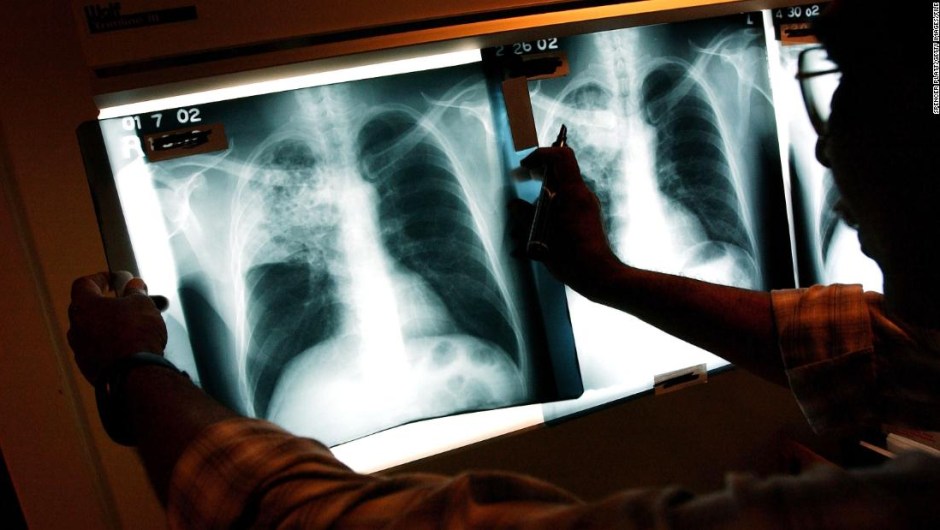Editor's Note: Nick Prince is the International Federation of the Red Cross, Asia Pacific Pandemic Preparedness Coordinator. The opinions expressed in this comment are yours. See more opinion at cnne.com/opinion
(CNN) - Deadly infectious diseases threaten to regain a foothold in many countries, fueled by covid-19 and the unprecedented effort to contain this ongoing global pandemic.
Vaccines are down in Asia Pacific and in most areas of the world. Diseases such as polio, measles and tuberculosis run a very real risk of reappearing on a large scale and causing widespread death, disease and disability.
- LOOK: The influence of viral load on the possibility of suffering a serious illness
The world has rightly turned its attention to fighting covid-19, and national and international restrictions play a critical role in slowing the spread of the virus. Massive resources have been allocated globally for testing, tracing, isolation, quarantine and treatment. Entire hospitals and health clinics have been prioritized to respond to COVID-19.
Health workers from countries like Indonesia, Bangladesh and Pakistan have been redirected to contain the virus outbreak.
Massive polio vaccinations have been postponed multiple times in the Philippines, in an effort to reduce the risk of spreading Covid-19, a decision that makes sense given that we wouldn't want to see more healthcare workers, parents and children get caught. at risk of covid-19.
Vaccinations were recently resumed in the Philippines, all carried out with the utmost care and caution, with medical workers and Red Cross volunteers helping to keep everyone safe. Nobody wants to get polio, a disabling and life-threatening disease that, as the CDC notes, can infect a person's spinal cord and lead to paralysis.
The world has made significant progress in eradicating or controlling the spread of several deadly infectious diseases that have long affected humanity, including smallpox, tuberculosis (TB), Ebola, dengue fever, and malaria. Just before covid-19, the world was once again on the verge of ending polio in most countries.
Death rates from TB have fallen by approximately 42% in the last two decades, according to the latest report from the World Health Organization (WHO). Persistent efforts have seen malaria deaths slowly decline globally.
Vaccination campaigns succeeded in interrupting the spread of measles and rubella, to the point that their deadly and debilitating consequences are a fading memory in many countries.
But concerted efforts to curb the spread of Covid-19 are having unrecognized consequences that threaten to undermine these hard-won achievements.
The race to discover a covid-19 vaccine has apparently suspended research into other preventable diseases, such as malaria, dengue, and the Middle East respiratory syndrome, or MERS, that remain a deadly threat to public health.
Public health efforts like physical distancing have disrupted most vaccination programs, threatening to undermine the herd immunity that keeps these viruses at bay.
Other illnesses have not been treated, as people are less likely to seek treatment due to travel restrictions and fear of becoming infected with Covid-19.
Volunteers and staff who have provided health education and primary health care services are now working in covid-19 clinics, their previous activities were reduced or suspended.
Studies are revealing this emerging secondary health crisis. Recent research published in the Lancet Public Health Journal found that HIV, malaria, and TB could increase by 10, 20, and 36%, respectively, over the next five years due to the pandemic.
Research, conducted by Imperial College London, has predicted that interruptions to TB services alone could cause up to 6.3 million additional cases and 1.4 million deaths worldwide in the next five years.
This is just one of a growing number of reports showing the doubly deadly health consequences of COVID-19.
The WHO model warns that disruptions could set back 20 years of progress in the fight against malaria. Another WHO investigation revealed that routine vaccines had been affected in at least 68 countries around the world, posing great risks to more than 80 million babies under one year of age in those countries.
Without widespread vaccinations, herd immunity will decline and cases of measles, rubella and diphtheria, among others, will reappear with the risk of massive outbreaks.
The deadly consequences of diseases like TB and measles may have faded from memory for many, but they still lurk in our homes, suppressed by vaccination programs and the resulting immunity in the community.
I have witnessed the lethal and debilitating consequences of these viruses if left unchecked. Last year I helped coordinate the response to the measles outbreak in Samoa that killed 81 people, mostly children, before it was brought under control.
While working for the Red Cross and Red Crescent in South Africa, I witnessed a resurgence of tuberculosis as the nation battled the deadly H1N1 pandemic. A great concerted effort was required to control this H1N1 flu virus.
Fighting COVID-19 is critical, but experience and history show that we must also continue to combat other dangerous infectious diseases that we have been battling for generations. If we give up the ground on the diseases we have grappled with for the past decades, we will end up in an even greater global health crisis.
covid-19 tuberculosis

